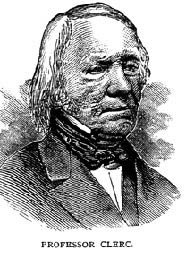Entrepreneurs like Mark Cuban or Scott Galloway of the NYU Stern School of Business know that while the world is topsy-turvy for many people these days, it might be an ideal time to start a new business or embark on a potentially life-changing project. But, what about the prospects for those in academic audiology?
The fallout from the Covid-19 pandemic, including the uncertainty of schools reopening in the fall and the economic downturn that has had a massive effect on the hearing aid industry, contributes to audiologists feeling a range of emotions from insecurity and anxiety to dread and panic. Academic audiologists, tasked with educating and on-boarding the next generation of professionals, may experience a particular strain, as enrollment in AuD programs is down and students already in many programs are facing a potentially catastrophic job market over the next few years.
Donald Nielsen, a distinguished academic program director with appointments over his 40-plus year career at the House Ear Clinic, Henry Ford Hospital, Central Institute for the Deaf, and Northwestern University, recently authored a handbook that offers insights and advice to academic programs. Nielsen may have officially retired a few years ago, but his decades of experience in change and crisis management are timely, as many now face uncertainty resulting from the pandemic.
As Nielsen, who now serves as a consultant for Fuel Medical Group, shared with HHTM:
“Most leaders don’t have time to read and digest information from the Chronicle of Higher Education, Harvard Business Review, JAMA, and McKinsey and Company, Pew, PWC, and Moody’s reports, etc. So, I have applied the wisdom and advice from these varied resources to academic audiology intending to help the profession move through this crisis successfully.”
Nielsen is launching his handbook electronically in two parts on CAPCSD’s website. Part 1 of the handbook focuses on the education program. Part 1 is available at this link.
New Approaches to Audiology Education
To stimulate innovation in response to the pandemic, he has reimagined education and included examples illustrating news ways to think about academic audiology. Before the pandemic, many universities were in crisis from shortfalls in revenue and enrollment. The pandemic highlights and amplifies these problems. The examples in the handbook align with these harsh realities and yield a very different concept of academic audiology.
Nielsen’s handbook intends to inspire the academic program leaders and those around them to arrive at equally innovative responses to the crises.
Part 2, which will be posted in July, focuses on preparing an academic audiology clinic for the pandemic and beyond.
Both parts of the handbook are offered free. Included in the handbook is an extensive list of projects academic university programs will want to consider as they develop their pandemic strategy. Also, a list of preparedness questions will help determine if they are ready to accomplish the projects and strategies they need to flourish.
Professors, clinical directors, and department chairs may not always align philosophically with business moguls like Cuban or Gates. Still, they probably do share their interest in finding novel ways to overcome all the ill-effects of Covid-19, Nielsen’s handbook will assist them.







